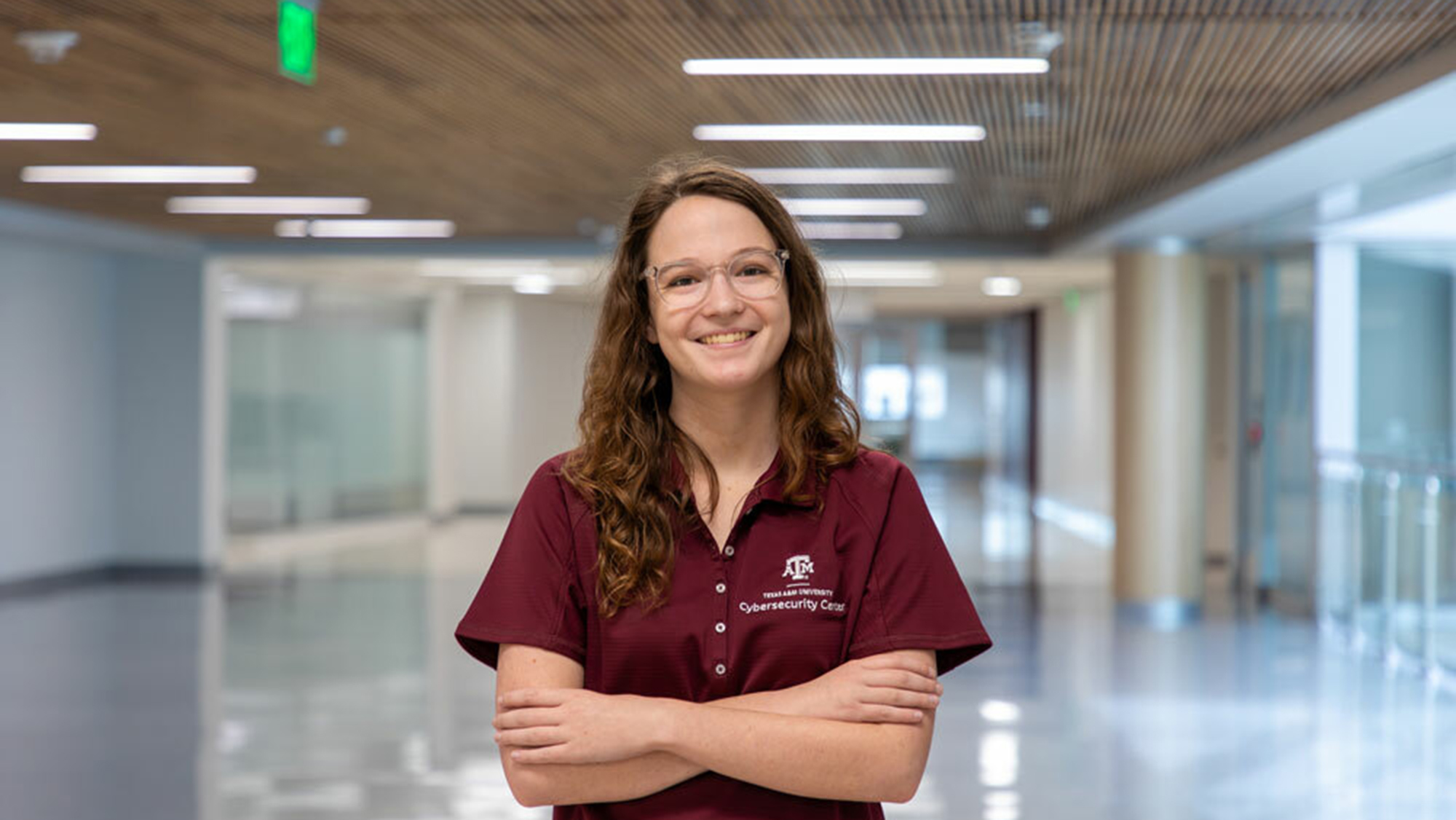
An undergraduate researcher at Texas A&M University has introduced a solution to reshape the landscape of online credentialing.
Sarah Flanery, a junior in the Department of Electrical and Computer Engineering, is researching possible protection measures for education using decentralized identity (DID) certificates and Web 3.0 data structures. DID certificates give users more control and ownership over their digital information, and Web 3.0 signifies the next generation of the World Wide Web. Essentially, these measures refer to removing a centralized source entity and using alternative security measures to authenticate essential data.
“This affects students wishing to not only have their learning credentials validated in other ways but maybe students who cannot afford expensive universities,” Flanery said. “Because, right now, the value of your education comes from the prestige of your university. What about people who don't necessarily have the money to attend a place like Texas A&M but are still learning independently? Why are their efforts less valuable than someone who simply has more money? We're trying to uplift underprivileged communities, specifically.”
Following extensive research aimed at assisting these communities and students in safeguarding their educational experiences, Flanery and her advisor, Dr. Christiana Chamon, an instructional assistant professor in the Department of Computer Science and Engineering, published their paper, “Web 3.0 and the Ownership of Learning,” in the Institute of Electrical and Electronics Engineers (IEEE).
We're trying to uplift underprivileged communities, specifically.
Flanery was selected to present her paper in November 2023 at the IEEE International Conference on Trust, Privacy and Security in Intelligent Systems and Applications in Atlanta, Georgia. The Texas A&M Cybersecurity Center funded her entire trip, which she took with Chamon.
“It was an amazing experience to spend an entire week there, meeting other researchers and people working on similar things,” Flanery said. “I received a lot of insight and inspiration for my own projects and met people from all over the world, maybe 10 to 15 different countries. Words can't describe how incredible that experience was. I'm really excited to see where this research continues to go. I can't wait to travel around the country, potentially the world, and present and publish more papers.”
Other collaborators to the paper include Dr. Srujan Kotikela, an assistant professor in the Department of Computer Science and Information Systems at Texas A&M University-Commerce, and Dr. Francis K. Quek, a professor in the Department of Teaching, Learning and Culture at Texas A&M.